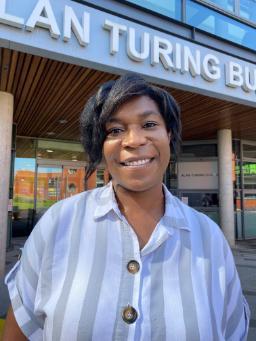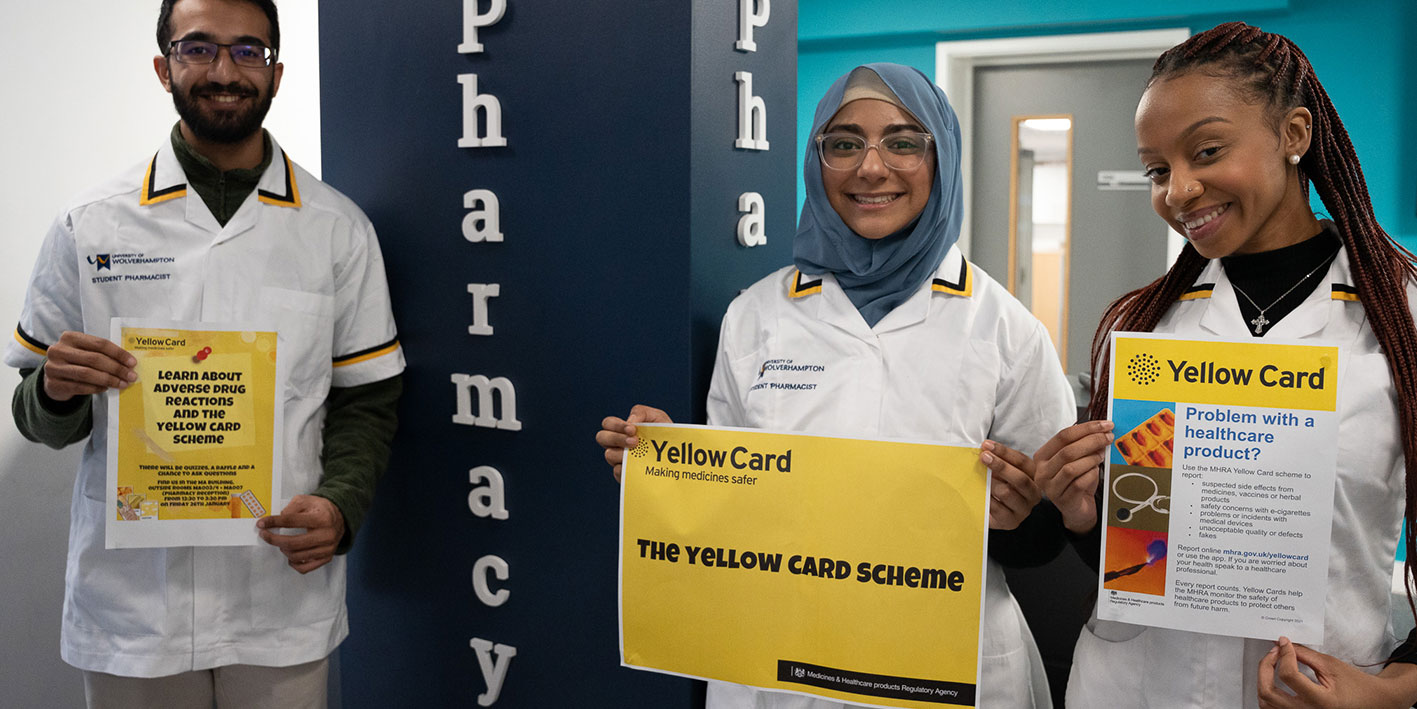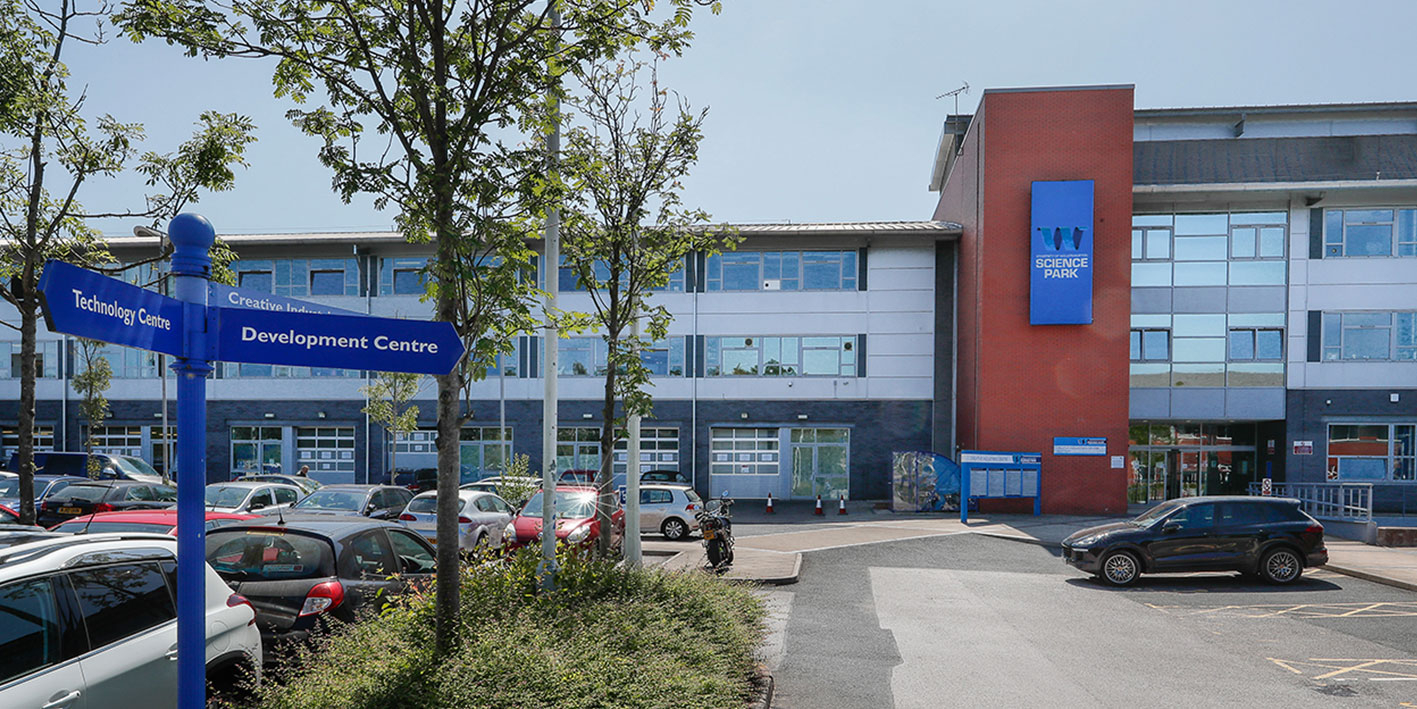
University boosts numbers of women enrolling on AI and data science courses
The University of Wolverhampton has helped a national effort to boost numbers of women enrolling on Artificial Intelligence (AI) and Data Science Postgraduate conversion courses.
New findings from an external evaluation of the courses funded by the Office for Students (OfS) shows a high proportion of enrolments from women, black and disabled students.
The University is one of 28 across England offering the courses which were introduced in June 2020 with the aim of responding to a skills shortage and a lack of diversity in the tech sector which is estimated to cost businesses £2 billion a year.
The Office for Students (OfS) is the independent regulator for higher education in England.
In partnership with the Department for Digital, Culture, Media and Sport (DCMS) and the Office for Artificial Intelligence (OAI), £13.5 million funding was allocated to the programme, consisting of £3.5 million to assist with course costs and £10 million to deliver 1,000 scholarships worth £10,000 each, aimed at women, black students and disabled students, among other groups considered to be underrepresented in higher education.
The University’s Faculty of Science and Engineering committed to equipping students with the training, education and managerial soft skills required to meet the industry standards and code of practice in Artificial Intelligence and Data Science through the new course.
Gea Perkins, 41 from Wolverhampton, is now studying for a Master’s degree in Data Science, funded by the OfS. She is studying part-time and has completed her first year of the course. Having secured a degree in 2001 in Business Administration and Marketing, Gea returned to studying 20 years later, having worked with data in a variety of roles throughout her career.
She said: “Throughout much of my employment I have worked with data and could not get away from the fact that I enjoyed this element more than other areas. I have always been intrigued by the way in which data can be derived and analysed. I noticed over the last couple of years that there was an increase and need for more in depth timely data, and data requirements were becoming more complex.
“When I saw the Data Science conversion course advertised with the University of Wolverhampton, I knew it was an excellent opportunity for me to develop the skills needed to meet the growing demand and gaps in the market. After reading articles about the low uptake of females in this area, I was inspired by those women who have progressed careers in data science, despite the sector mainly being male dominated.
“I’m studying part-time, I work full-time and I have a family and this is the best option for me. There’s lots of support from other students from different backgrounds it helps with learning. I’m learning about a range of things, the background of data science and how companies can make decisions on the wealth of data they have. This course gives you the tools, data visualisation, machine learning and research methods.
“At my age I never thought I’d go back to University but there’s lots of support available and the course is fully funded which is a real advantage.”
The programme of study allows students to choose modules to top up their skills as well as offering them the opportunity to complete paid internships.
Local partners Transport for West Midlands, City of Wolverhampton Council and The Royal Wolverhampton NHS Trust are supporting the programme by providing students with case studies based on real events and businesses will provide a cloud training environment to be modelled from real-world scenarios as well as offering placement opportunities.
Students have flexible access to study and course content so they can fit their studies around their daily lives. Students can also undertake paid work placements to help maximise their employment opportunities at the end of their course which could see them land roles as machine learning engineers, data scientists, research scientists or AI architects.
The courses are designed as conversion courses, so graduates of all ages who are looking to retrain, gain new skills or return to work after a career break can apply without needing a background in a STEM subject. Applications are welcomed from students with undergraduate degrees in subjects other than STEM, as well as for new graduates yet to enter the labour market.
The OfS’s Director for Fair Access and Participation, Chris Millward said: “The OfS’s aim is to ensure that every student, whatever their background, has a fulfilling experience of higher education that enriches their lives and careers. This enrolment data shows early and promising indications of a change within the tech industry, which will help to meet skills shortages, whilst enabling the industry to look more like society as a whole.
“The courses provide exciting opportunities for students to fit their studies around other commitments through flexible learning and scholarship support. This is enabling graduates at different points of their careers to gain the advanced skills they and their employers will need for the future.”
Dr Liam Naughton, Senior Lecturer in Mathematics in the University’s School of Mathematics and Computer Science, said: “As the University of Opportunity, we were delighted to receive funding for this new course and we are really excited to see that only a year into its introduction, it’s having an impact on helping to address the skills gap currently affecting the industry.
“An important aim for these courses is to increase the number of people from groups currently underrepresented in the AI and data science fields, and to encourage graduates from diverse backgrounds to consider a future in these occupations.
“We currently have over seventy students enrolled on the courses and one thing that is striking is the diversity of the student cohort. With first degrees from areas such as music, business, and psychology as well as STEM subjects, we are seeing an incredibly rich learning space emerge.
“The funding from the Office for Students has enabled us to award a number of scholarships of £10,000 to students and these scholarships are prioritised for students from underrepresented groups in the AI and Data Science fields, with Gea being one of the recipients – and as she has demonstrated, it’s never too late to return to learning and pursue qualifications and skills which will not only enhance your career but open doors for future opportunities.”
The lack of diversity was highlighted in the government's AI Sector Deal which acknowledges that increasing diversity in the AI workforce is vital to ensure that everyone with the potential to participate has the opportunity to do so. For example, women represent 49 per cent of the workforce, but hold less than 19 per cent of all available technology jobs.
The new data shows that nearly half (46 per cent) of the total UK students are women, compared with 27 per cent on computing postgraduate taught Master’s courses previously 23 per cent are black students (12 per cent) and 20 per cent are disabled (16 per cent). This is much higher than the tech workforce as a whole. Compared to data by TechNationExternal link (Opens in a new tab or window) highlighted in the government’s AI Sector DealExternal link (Opens in a new tab or window), women represent 49 per cent of the workforce but hold less than 19 per cent of all available technology jobs.
The programme aims to enrol at least 2,500 students by autumn 2023. At the end of the first year, the programme is over halfway to achieving that target with 1,315 students enrolled on courses. Of the 170 scholarship students who were from the UK, nearly three quarters (74 per cent) were women, a quarter (25 per cent) were disabled and 40 per cent were black.
Findings from an external evaluation show almost half (46 per cent) of the first year’s cohort had undergraduate degrees in either non-STEM or other far-STEM subjects (such as biology, geology, psychology, medicine). In the survey, 61 per cent reported that they had applied for the courses following employment with 37 per cent of the total stated their prior role was long-term and considered it to be a career-job.
For anyone who is awaiting the results of their qualifications, they can register their interest and book a phone call with a Clearing Adviser on results day, Tuesday, 10 August.
Anyone looking to study at the University of Wolverhampton should register for one of our forthcoming Open Days.
ENDS
For more information please contact the Corporate Communications Team.


/prod01/wlvacuk/media/departments/digital-content-and-communications/images-2024/240328-Varsity-Line-Up-Resized.jpg)
/prod01/wlvacuk/media/departments/digital-content-and-communications/images-18-19/220325-Engineers_teach_thumbail.jpg)
/prod01/wlvacuk/media/departments/digital-content-and-communications/images-2024/240404-Digital-Humanities-Training-Resized.jpg)
/prod01/wlvacuk/media/departments/digital-content-and-communications/images-2024/240320-Uzbekistan-Resized.jpg)
/prod01/wlvacuk/media/departments/digital-content-and-communications/images-2024/240229-The-Link-Resized.jpg)
/prod01/wlvacuk/media/departments/digital-content-and-communications/images-2024/240404-Pharmacy-Students-Resized.jpg)


